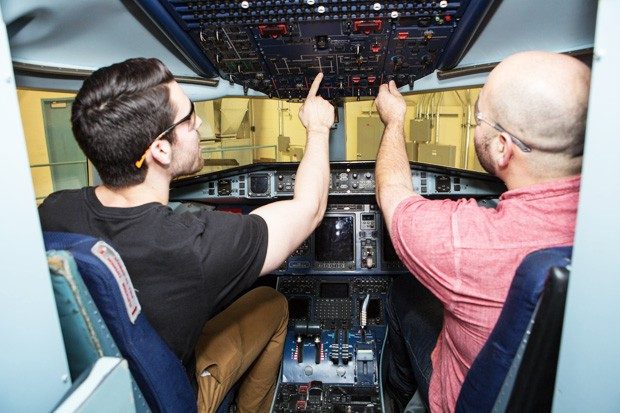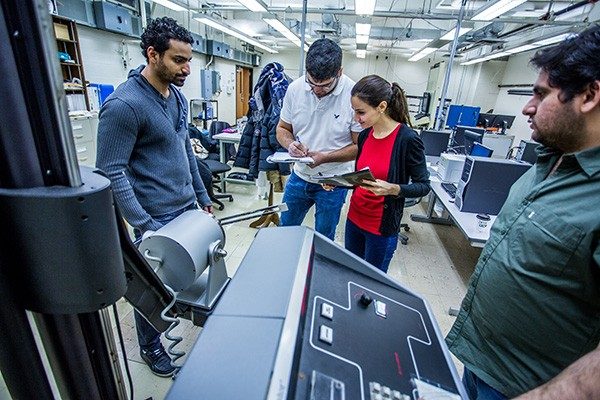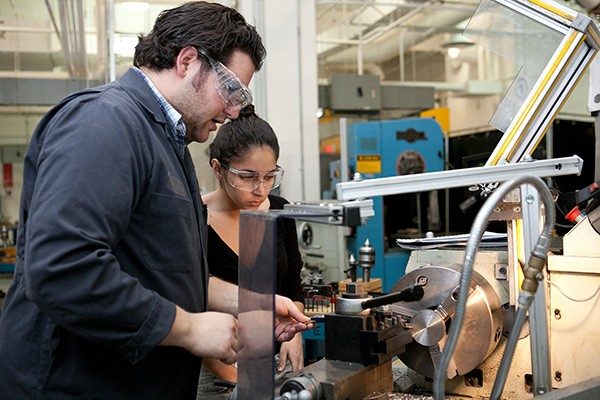Programs
A blend of fundamentals and theory, practical applications, and hands-on learning prepares you for an engineering career.
Programs by discipline

Aerospace Engineering
Master the mechanisms behind flight and propulsion in the atmosphere and in space. Apply concepts of mathematics, engineering and technology to design and build aircraft, spacecraft, rockets and drones – while keeping flight safety, fuel efficiency, operating costs and environmental impact in mind.

Industrial Engineering
Use your knowledge of human behaviour, equipment, information and modes of communication to develop processes that work. Industrial engineers are experts in optimization who apply mathematics, engineering and psychological principles to improve productivity, safety and quality.

Mechanical Engineering
Build engines. Design robots. Control explosions. As a mechanical engineer, you will create, construct and control machines. Whether it’s a vehicle, an aircraft engine or an assembly line, mechanical engineers know how to fit that square peg into a round hole, and do it with a little finesse.

Nanoscience and Nanotechnology
Examine the science and technological capabilities of materials and devices on the nanometer scale: quantum materials, nanoconstructs for medical applications, nanomechanical systems and biological circuits.
Degrees offered
Co-op programs
This program, which alternates work and study terms, is available to students in:
- BEng in Aerospace Engineering
- BEng in Industrial Engineering
- BEng in Mechanical Engineering
- MEng in Industrial Engineering
- MEng in Mechanical Engineering
Still looking for the right program?
Browse all the programs offered at the Gina Cody School
Undergraduate
19 undergraduate programs lead to bachelor degrees or certificates, including inter-disciplinary studies.
Graduate
34 graduate programs that lead to master's, doctoral, diploma and certificate degrees.


Speak with a recruiter
Sarah Makhlouf and Mieke Stenerson, Student Recruitment Officers for the Gina Cody School of Engineering and Computer Science are available to answer your questions about studying at Concordia. Register for an information session to learn more about the Gina Cody School and the many programs we offer in engineering and computer science, and how to submit your application.

